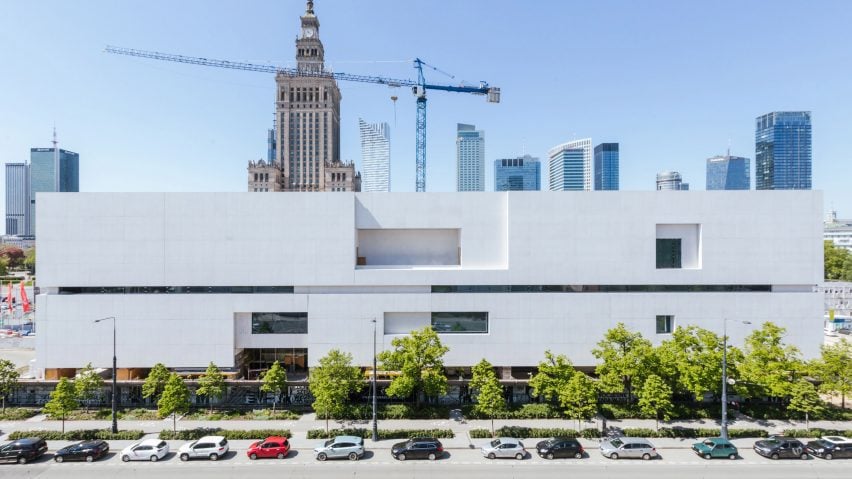
Thomas Phifer uses white concrete to create boxy Museum of Modern Art in Warsaw
US architect Thomas Phifer has unveiled the Museum of Modern Art in central Warsaw, which resembles two giant boxes stacked on top of each other.
Finished in Phifer's signature minimalist style, the completed building marks the end of a two-decade wait for the cultural institution to have a permanent home.
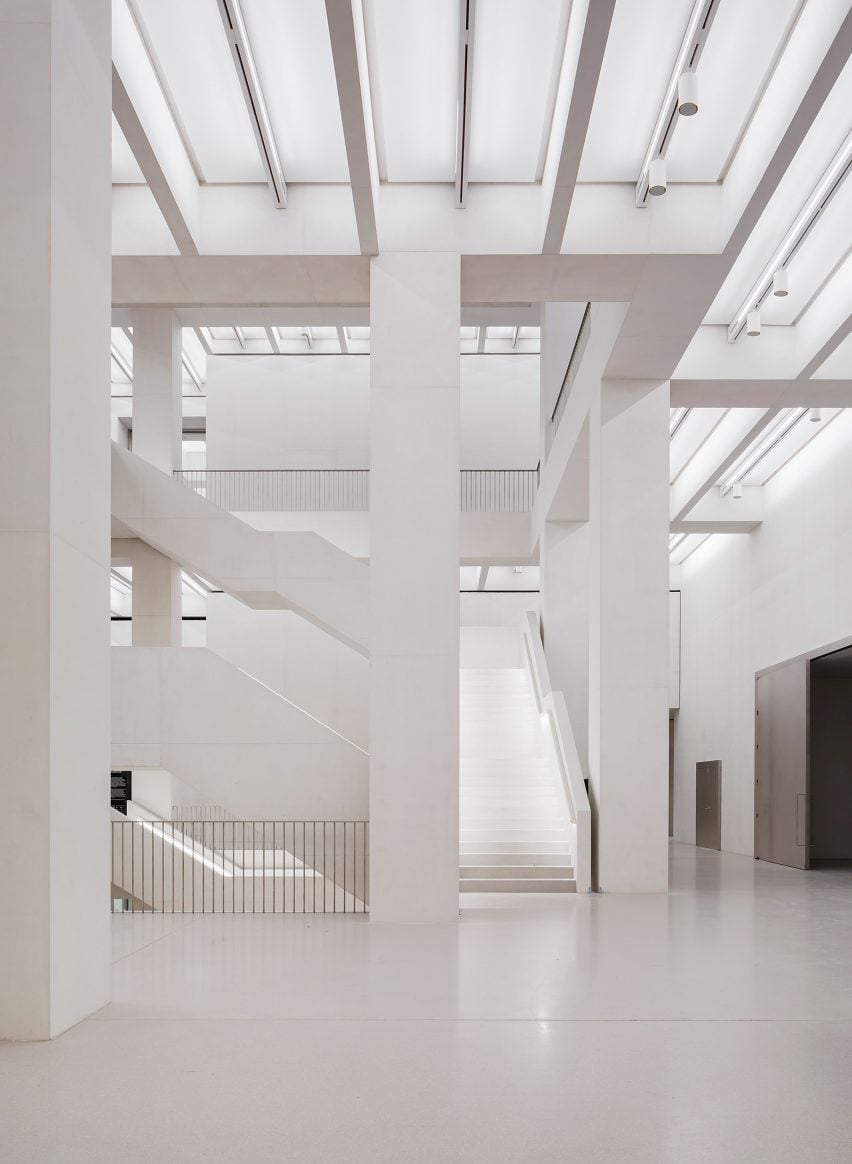
Inside, an angular double staircase rises to a glazed ceiling, flooding the central space with light. Phifer said the staircase at the Museum of Modern Art (MSN) was designed to function as "a playful social space for people to stop and talk".
Galleries of different proportions on the upper floors are interrupted by small meditative rooms made from European ash, inviting visitors to reflect while looking out to views across the city.
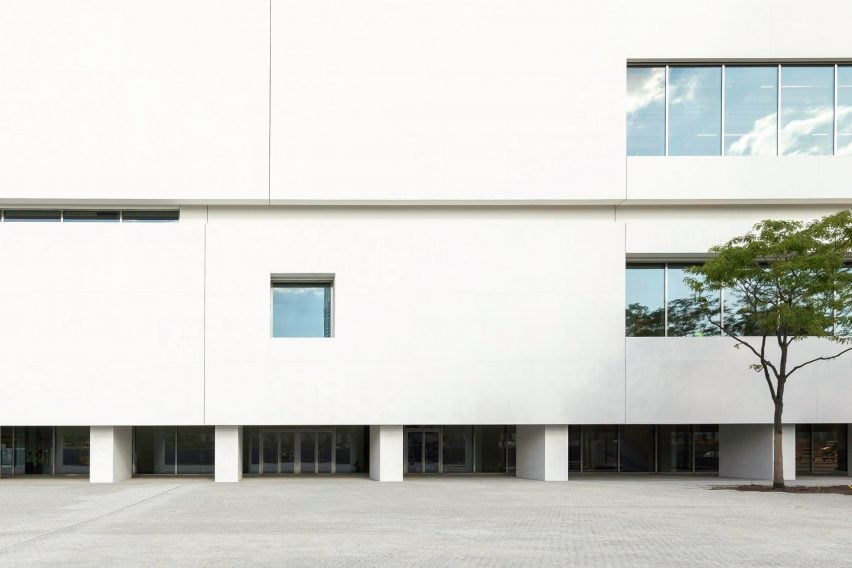
The ground floor was intended to be a more bustling space, featuring a bookshop and cafe with multiple entry and exit points. It is connected to two subway stations and close to a major bus station, helping it function as a public thoroughfare.
"It was important we had no barrier," said Phifer. "We want to see people come through on their way to and from work or school. This [the museum] has been conceived as a public space."
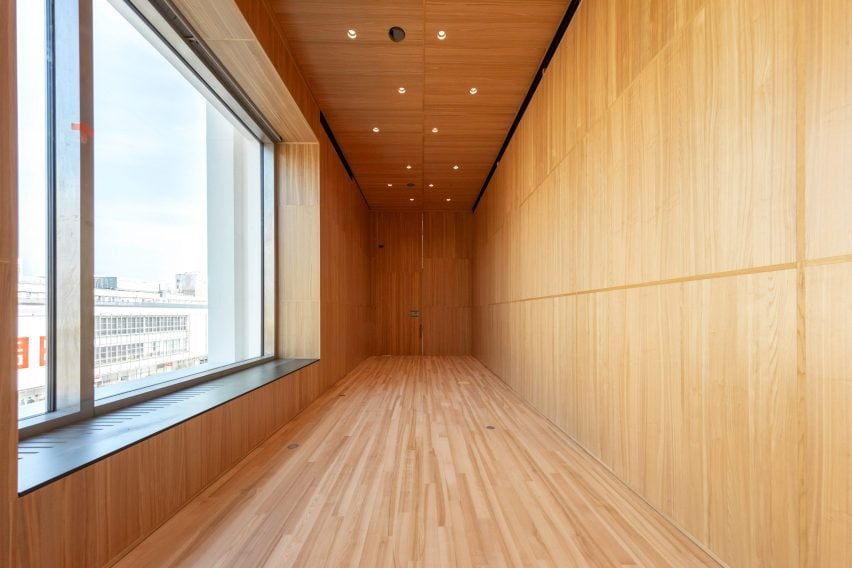
The gallery's ground floor will host a space dedicated to experimentation with a "non-standard approach to creating exhibitions and programmes", the museum said.
Artist collectives and other communities will be invited to combine art with activism and social work.
As well as showcasing the museum's collection of Polish and international art, the building also includes a 150-seat theatre, an auditorium and teaching spaces.
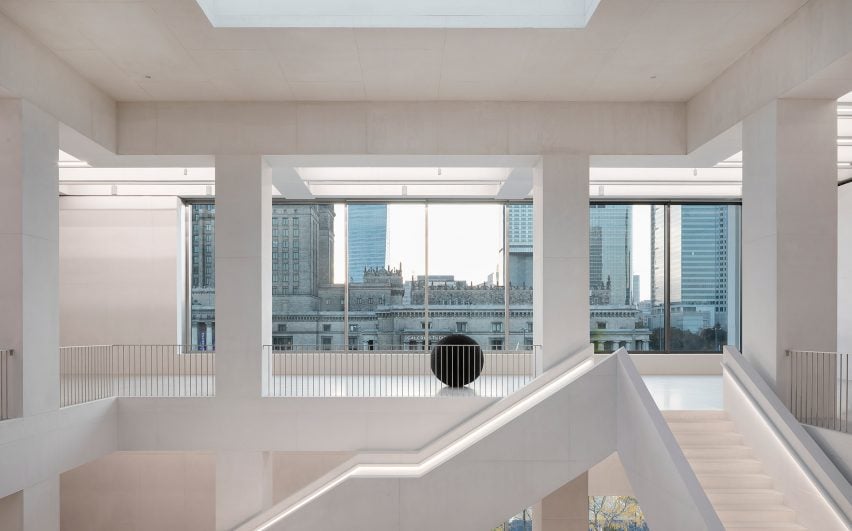
The building is sandwiched between a 1970s-era low-rise shopping centre on one side, and the Palace of Culture and Science commissioned by Stalin and completed in 1955 on the other.
Enveloping the MSN museum is Parade Square, the largest public square in Europe and the focus of an ongoing redevelopment project.
The square will see the addition of the TR Warszawa theatre in five years, also designed by Phifer, alongside an ambitious landscaping project to turn what was once a concrete wasteland into a park with a jazz bar and two ponds.
"This museum should make culture open and accessible for people from anywhere," said Aldona Machnowska-Góra, deputy mayor for Warsaw. She told Dezeen she anticipates the museum will attract 800,000 visitors every year.
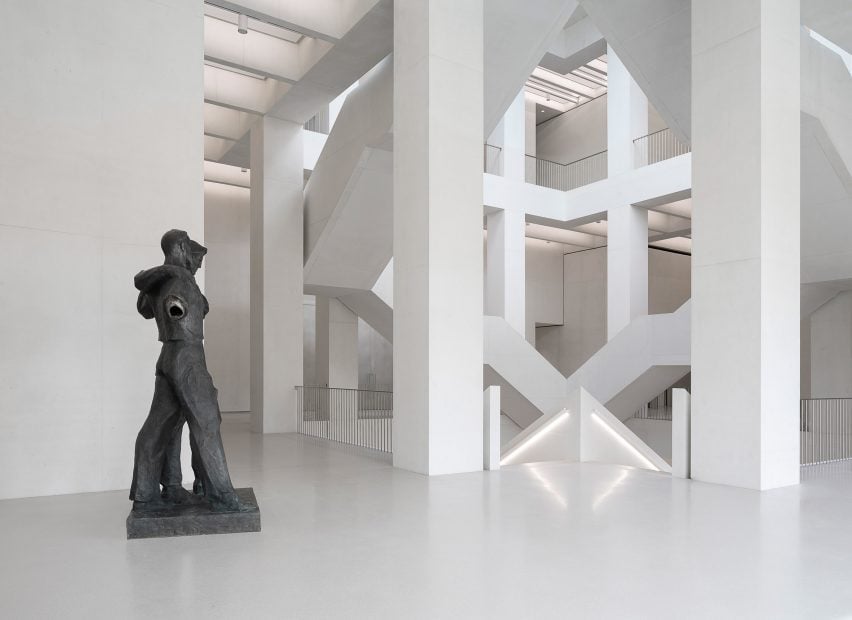
The museum has been dogged by delays and false starts. The initial bidding process in 2005 was criticised for excluding foreign architects.
The second, a year later, saw Swiss architect Christian Kerez awarded the commission but plans for his design collapsed in 2012. Phifer’s scheme was selected in 2014 and also included the design of the adjacent theatre.
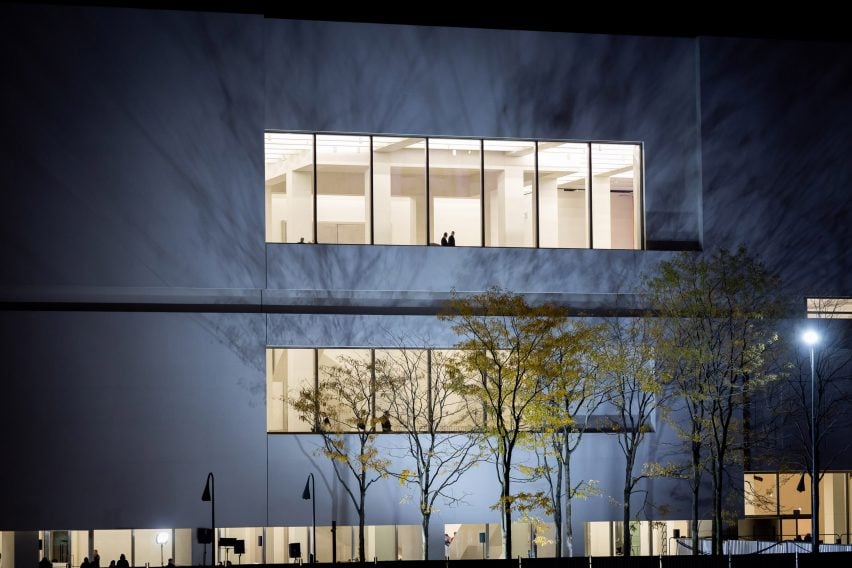
Phifer said he became aware his project since 2014 was part of a "remarkable renaissance" in Warsaw.
"This project, which is 20 years in the making, gives the Polish capital its first permanent home for international contemporary art," said Joanna Mytkowska, director of the museum.
Phifer said the museum was deliberately designed to be pared back and white, likening it to a "magic box" to allow the art to take centre stage, inside and outside.
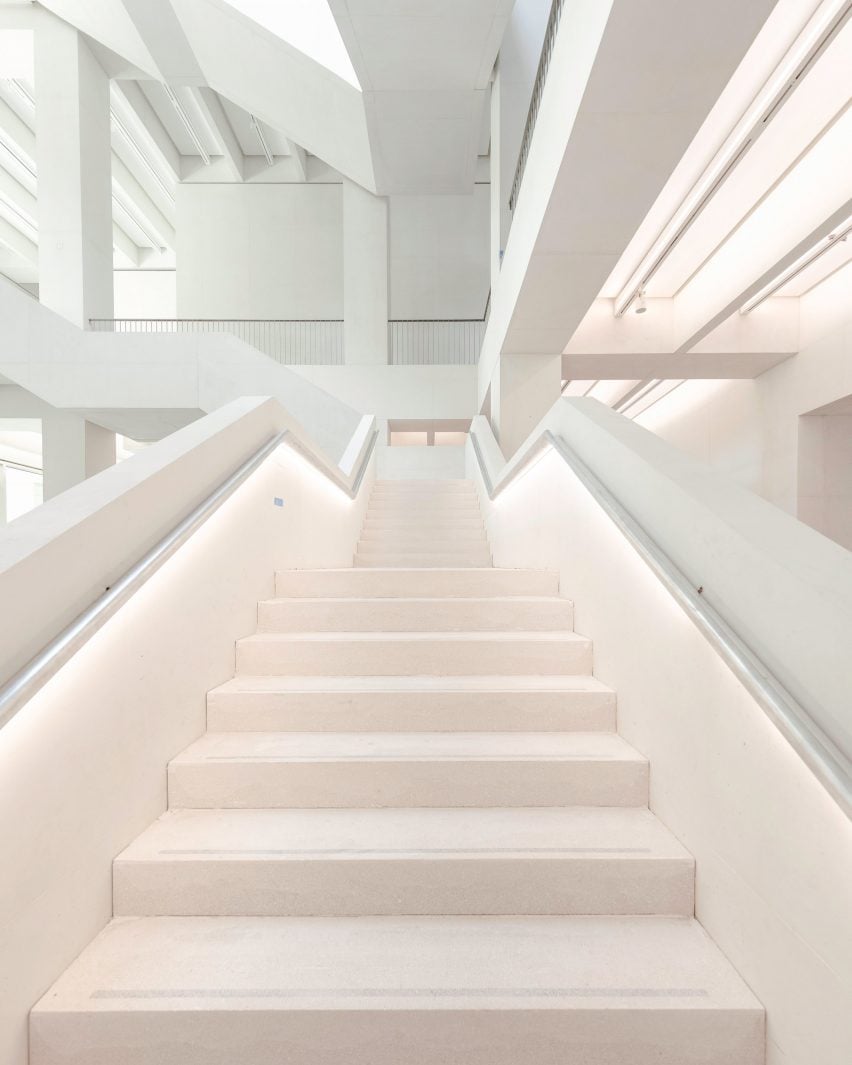
"You don't really understand this work until you come inside and experience it with the art," he said.
Phifer recognised the museum and theatre projects in Warsaw represent the biggest milestone for his studio, both due to the scale and being located in Europe.
His previous work has largely been focused in the US, notably the expansion of the Glenstone Museum in Maryland and the Salt Lake City courthouse.